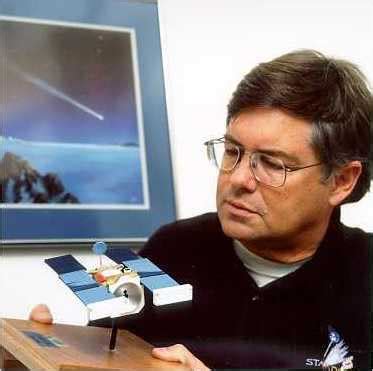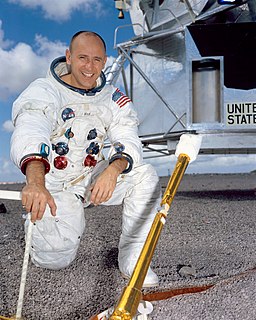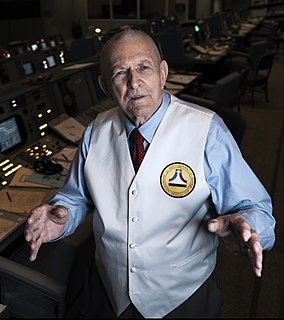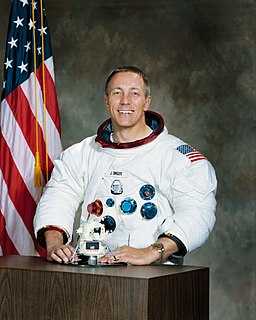A Quote by Steve Jurvetson
Since the Moon has no atmosphere, it presents a unique orbital opportunity - we could fly incredibly close to the surface while staying in lunar orbit.
Quote Topics
Related Quotes
When I finally had the chance to make my childhood dream a reality - as a co-founder and chairman of Moon Express - my goal was to broaden participation in lunar exploration, and connect the common person to its results. We plan to send robotic rovers - not humans - to the Moon to search for precious metals and rare minerals on the Moon's surface.
The exciting part for me, as a pilot, was the landing on the moon. That was the time that we had achieved the national goal of putting Americans on the moon. The landing approach was, by far, the most difficult and challenging part of the flight. Walking on the lunar surface was very interesting, but it was something we looked on as reasonably safe and predictable. So the feeling of elation accompanied the landing rather than the walking.
The next 15 years will see thousands of people leave the atmosphere on suborbital flights. My company's SS2 system might fly 100,000 people by 2024. If it is shown to be highly profitable, perhaps we will see 20,000 people traveling to orbit by 2035, and then thousands to the moon by 2050. If we make a courageous decision, like the program we kicked off for Apollo, we will see our grandchildren in outposts on other planets.
Standing on the Moon looking back at Earth - this lovely place you just came from - you see all the colours, and you know what they represent. Having left the water planet, with all that water brings to Earth in terms of colour and abudance life, the absence of water and atmosphere on the desolate surface of the Moon gives rise to a stark contrast.


































